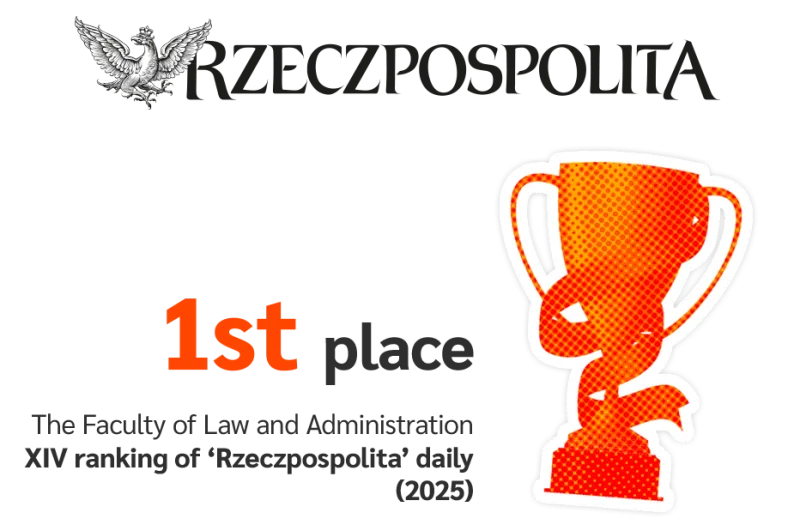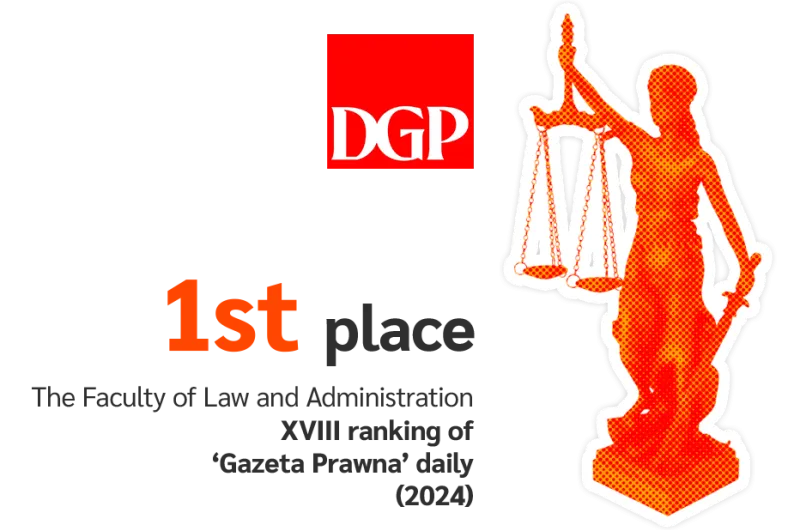Do you know that Zbysław Ziemacki:
- studied at 3 universities;
- believes that grades at school do not translate into happiness;
- appreciates those students who are not afraid of failure;
- advises students to look for a job, that they will love, at all costs;
- claims that one of the books that can change the world is Thomas Piketty's ‘Capital’.
I invite you to read the full interview.
<strong>When I was in school, I heard from teachers that students should have good grades and a well-paid job in order to be successful, but the reality is often quite different. Do you think that good grades at school can fully reflect real knowledge?</strong>
I will say right away that I have a negative attitude towards the classical model of education. I believe that the school is badly organized. There is a system of putting encyclopedic knowledge into the head. It aims to implement the program. It does not teach soft skills, critical thinking, looking for solutions, creativity. It does not help to understand the world. Looking at my friends from school, I can see that grades do not translate into life performance and happiness, because of the weakness of the system.
<strong>What was important for you when choosing a major and university? Where did you study?</strong>
I studied at several universities: at the Faculty of Management of the University of Warsaw, then I studied International Economics at Warsaw School of Economics, and also at University of Economics in Vienna. What influenced my choice? Of course, it was influenced by the interest in social sciences, primarily in economics, but also in psychology and sociology. However, a very important factor was the situation on the labor market. At that time, the unemployment rate among young people reached 40%, which was also a slightly different reality. Today, the prospects of graduates on the labor market are much better.
<strong>How long have you been working as a lecturer?</strong>
I do not have a long internship here, this is my second academic year. Before that, I worked in business and public administration. There, I had a lot of experience in sharing knowledge, presentations and public speaking, but of course it was a different audience than students.
<strong>What are the advantages and disadvantages of working as a lecturer?</strong>
I see a lot of advantages. First of all, great satisfaction, the possibility of contact with amazing young people, interesting conversations and polemics, but also my own development. There is a reason it is said that you can learn the most by teaching others, so this is also my motivation to deepen my knowledge. Due to my brief experience, I haven't discovered the flaws yet. Maybe, we should repeat this interview in a year or two and I will have something more to say about it.
<strong>Who is the perfect student for you?</strong>
For me, an ideal student is a hungry student - hungry for knowledge, hungry for success, but also a brave student who is not afraid of failure. Americans say ‘It is okay to fail’, and I like it very much, of course, provided that we learn from the mistakes made. So hunger and courage - these are the basic qualities. Then skepticism and critical thinking go on. We should not take everything at face value, even if we are listening to an outstanding professor. You must analyze everything you read and listen to. The willingness to acquire knowledge is also important, i.e. reading and reading again! A good student should care about making the most of his study time and read as many valuable books as possible. Life verifies us later, and, unfortunately, there will be much less time for that in future.
<strong>If you had a time machine and could move back to when you were in your first year of college, what advice would you have given to yourself? </strong>
I will use a quote from Confucius:<br /> ‘Choose a job you love, and you will never have to work a day in your life’.
This is a very difficult task, it requires a lot of courage and faith in your own abilities, but also consistency and effort. It is worth fighting for it and not giving up, since a happy life is at stake.
<strong>What 3 books changed the world in your opinion? </strong>
I believe that the world was changed, for example, by Adam Smith's book called ‘The Wealth of Nations’. This book actually made a big impact on the world we live in now. But I would like to focus more on books that can change the current world and I would like them to change it. This is, for example, the book by Marianna Mazzucato called ‘Entrepreneurial State’, where the author, in my opinion, takes a very revolutionary approach to the model of state participation in the economy; or the book by Thomas Pikketty called ‘Capital’, which deals with the great dilemma between economic efficiency and social justice. This is a problem that we are grappling very hard with now, which is social inequality, the growing gap between the richest and the poorest. I think that these types of books that try to deal with such problems may be very important for the world in the near future.
<strong>Thank you so much for the interview. </strong>







